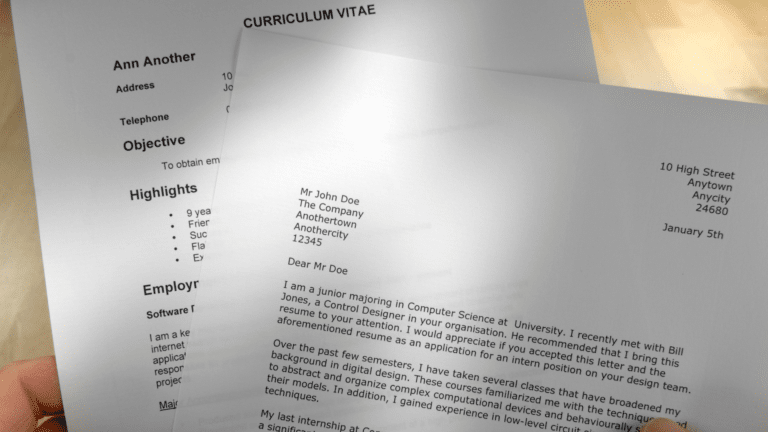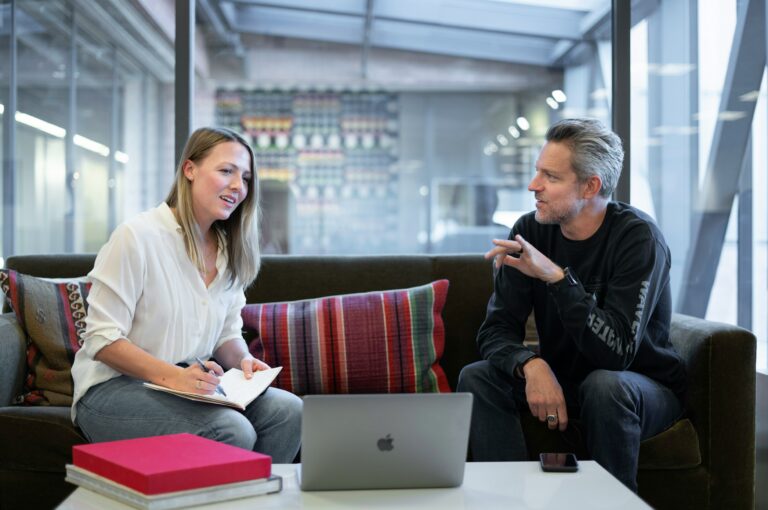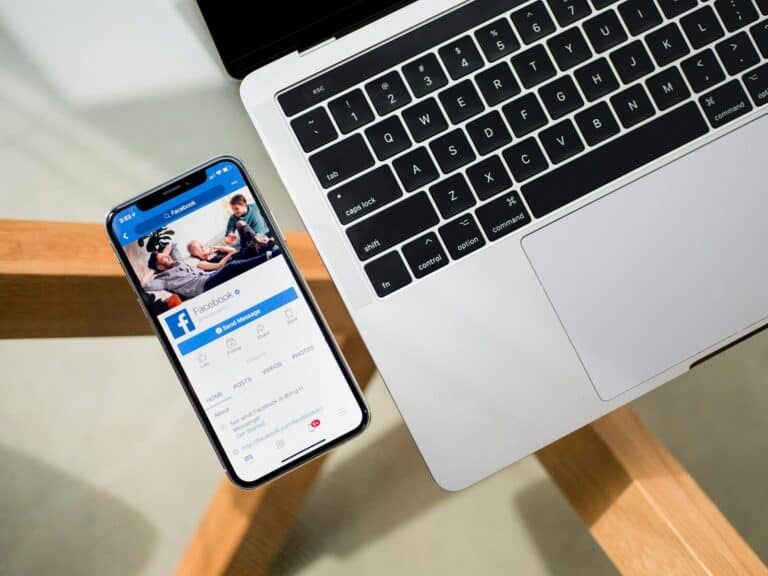If you were to share your greatest accomplishment in your career, how would you describe it?
Job interviews can be physically, mentally, and emotionally draining. You need to prepare yourself for the toughest questions; otherwise, you will find yourself stuttering or, worse, speechless for the duration of your interview.
In this article, we will share some pro tips on how to answer one of the trickiest questions that interviewers ask: “What is your greatest accomplishment?”
Read on to learn how to ace this question in your next job interview!
Key Takeaways
- Employers ask candidates about their greatest accomplishments to assess their work ethic, as well as how they devise a strategy to achieve a specific goal.
- When choosing a career accomplishment to share, it is essential to stay professional, focus on the relevance of the experience, think of a recent achievement, and provide quantifiable results.
- The STAR method is a systematic approach to answering behavioral questions, including those related to career milestones.
- To help you come up with an impressive description of your biggest professional accomplishment, try rehearsing your answers. Also, improve your posture, breathe, exude confidence, be brief, and be realistic.
Why Do Employers Ask, “What is Your Greatest Accomplishment?” at Interviews?
Interviewers don’t just ask interview questions at random. They use the interview portion of the hiring process to uncover critical information about each applicant.
This is exactly why employers ask applicants to describe their greatest achievements.
Often, candidates have all the qualifications but end up not sharing the same core values as the company. This could prove to be a challenge later on when conflict in the workplace arises.
Specifically, it will be difficult for the employee and the management to meet halfway in finding a viable solution to fix the problem. Similarly, a candidate may be lacking in some soft and hard skills that the employer deems necessary to fulfill the role.
While your resume may look stellar, employers have to make sure you share the same work ethic and outlook as their company. By shifting the focus to what you perceive as your most notable accomplishment, employers get to know your priorities in life and in your career.
They will also ask you to elaborate on how you made your greatest achievement happen to understand how you plan your work process to achieve a specific goal.
How to Choose an Accomplishment
Consider the short checklist below to help you prepare a more thoughtful and guided answer to the question, ‘What is your greatest achievement?’
#1. Pick a Professional Achievement
Your job interview is like a stage where the spotlight is focused on you for a brief moment. As such, you need to make that short amount of time count.
You need to stand out and make a lasting impression. To do that, think of an achievement that has had a long-lasting and positive impact on your career.
The accomplishment has to be something that either introduced you to a fresh perspective on work, pushed you to step outside of your comfort zone, or led you to develop new skills. Moreover, your accomplishment should’ve helped your team or company to a noteworthy extent.
#2. Make it Relevant
Next, your accomplishments have to be relevant to the role you are applying for.
For example, if you are applying for a managerial position, think of a career milestone that demonstrates specific skills that an employer would seek in a manager. Some of these managerial skills include leadership, decision-making, task and resource delegation, planning and strategizing, people management, and communication.
If you are applying for a role in customer support, then you must have had relevant experience and accomplishments that required effective listening, adaptability, patience, and the ability to communicate clearly.
#3. Make it Recent
It makes perfect sense to mention a recent accomplishment because it describes the knowledge and skill set that you possess at present.
It could be something you accomplished at your last job, as opposed to something that happened when you were in high school, since that most likely wouldn’t seem as fitting and relevant in a corporate setup.
It is also easier to recall all the big and small details of a recent milestone than it is to remember a feat that you achieved years ago.
#4. Make it Quantifiable
Let your interviewer paint a clearer picture of your achievements by pinpointing measurable results. Quantifying your accomplishments adds more value to your skills and fitness for the job.
The lack of a numerical component might put you behind other, more experienced candidates.
Let’s look at an example:
Simply saying that you oversaw the implementation of a marketing plan to increase customer acquisition is ambiguous, lacking, and, quite frankly, unimpressive.
On the other hand, if you are more specific and describe how you devised a marketing strategy that enabled a 35% increase in customer acquisition in a span of six months, it puts your expertise in executing a plan and appealing to customer pain points in very concrete terms.
How to Answer “What is Your Greatest Accomplishment?” Interview Question
Despite having an amazing story to share with your interviewer, the lack of structure and foresight when answering this question might lead you to feel overwhelmed during your interview.
Fortunately, the STAR method is a systematic approach designed for answering behavioral interview queries.
STAR stands for:
- Situation. Start by briefly describing the context of your experience. The idea is to provide a preview of your account to your interviewers. Entice them with a few sentences and help them create a clear picture of the situation you are about to share.
- Task. This is where you elaborate on the tasks that were entrusted to you by your supervisor or team. Try to focus on the main areas of your endeavor and list the challenges and problems that you had to solve.
- Action. The ‘Action’ stage is where you can be as detailed as you can and put emphasis on your key strengths. Seize this opportunity to showcase why you should be chosen for the job. What actions did you take to attain your goal? If you were tasked to resolve a crisis in the workplace, how did you handle the situation? If you were asked to devise a new strategy to boost your team’s performance, what steps did you implement?
- Result. Describe the aftermath of your actions. What results did your efforts yield? Explain what you learned, list the new skills that you developed, and provide concrete and quantifiable results of your hard work.
“What is Your Greatest Accomplishment?” Sample Answers
Now that you know what the STAR method is all about, it’s time to put it into action. Listed below are concrete examples of how you can apply the STAR method:
#1. Sample Answer for Fresh Grad
Situation: My greatest accomplishment as a student was organizing a three-day workshop for student leaders at our university. The workshop’s objective was to determine how to implement school rules that effectively address various student concerns, such as stress, time management, and building relationships with their peers.
Task: I had to prepare the necessary data and resources and keep in touch with the different student organizations to ensure the workshop was both informative and eye-opening.
Action: I conducted a survey around the university to assess the most pressing concerns experienced by the majority of students at that time. Then, I researched previous studies related to these concerns and also looked up any existing school rules meant to address them.
Finally, I coordinated with the leaders and members of the participating organizations, delegated tasks, and reached out to a handful of prospective speakers for the event.
Result: The three-day workshop was a success. I managed to invite three speakers from the educational and psychology sectors and received a wave of positive feedback from student leaders and members alike.
Before I graduated, we were able to implement two new school regulations: one focused on strengthening the university’s existing anti-bullying campaigns, while the other was set on creating a hotline for students in distress.
Why it works: Organizing any kind of event is no easy feat. It takes patience, critical thinking, and flexibility to pull it off. The sheer amount of details in the example provided is more than enough to exhibit the applicant’s capability to be adaptable, resourceful, and highly cooperative.
#2. Sample Answer for Customer Service Representative
Situation: My proudest feat as a customer support representative involved assisting an elderly customer in depositing money through their online bank account.
Task: I had to explain the step-by-step process of depositing money via online banking.
Action: Since the customer was not well-versed in technology, I had to use simpler terminologies and elaborate on all the terms and steps that were confusing to them. I also had to go over each of the steps a few times to ensure the customer understood the instructions correctly.
Finally, I established rapport with the customer by continuously giving them assurance and communicating with them in a calm and friendly manner.
Result: I was able to help the customer deposit money into their account, and the customer was extremely grateful. The customer also gave me a five-star rating in the customer satisfaction survey.
Why it works: The candidate was able to demonstrate the essential skills that a dependable customer service representative must possess: patience, empathy, and the ability to communicate clearly with customers.
#3. Sample Answer for Teacher
Situation: My greatest accomplishment as a teacher was helping a very problematic, almost delinquent sophomore class pass all of their subjects and move forward to the next grade level.
Task: I prepared an extensive curriculum that addressed the learning difficulties and concerns of the students.
Action: I facilitated remedial classes every day and regularly tracked the academic progress of each student. I organized parent-teacher conferences to help address and resolve family problems and other personal concerns that affected the students’ concentration and motivation in class.
Result: It took a great deal of persuasion and consistency, but, in the end, I am happy to say that all 30 students in that particular class passed their exams and advanced to the next year.
Why it works: The sample answer works because it illustrates one of the key roles of a teacher—to inspire students to overcome obstacles and strive for success.
#4. Sample Answer for Account Manager
Situation: My most noteworthy achievement as an account manager was how I earned the trust of what eventually became one of the company’s biggest clients yet.
Task: In 2019, I was assigned to a prospective client for the company’s video moderation services. The client was hypercritical, had multiple requests, and seemed unimpressed by our in-house moderation software.
Action: I supervised all the tests needed to check that our video moderation software yielded the expected results. I took note of all the trial and error to assess how the team could accurately moderate all the video content sent by the client.
I consistently communicated and cooperated with the client, the client’s team, and our in-house moderators to ensure a smooth-flowing process from the beginning to the very end.
Result: In the end, the client was impressed and went on to sign an exclusive, long-term contract with the company. I can confidently say that my relentless efforts and commitment increased the company’s overall profit by 38%.
Why it works: The answer exudes confidence, consistency, and dedication. All three are traits that employers typically look for in a candidate vying for a managerial position.
#5. Sample Answer for Social Media Specialist
Situation: As a social media specialist, my greatest accomplishment was when I effectively increased engagement and conversions on the company’s website and social media pages.
Task: I was tasked with revitalizing and boosting engagement on the company’s Facebook, Instagram, and YouTube pages.
Action: I built individual social media campaigns from scratch for each of the pages. I reviewed previous campaigns implemented by the company and referenced current trends in social media marketing.
Additionally, I worked closely with the content and design teams to create enticing posts that promote the company’s services and appeal to its target audience.
Result: I was able to increase engagement rates on all three social media pages: 3.5% on Facebook, 4.5% on Instagram, and 3% on YouTube. The increase in engagement rates also led to a significant boost in leads and conversion rates on the company’s website.
Why it works: Quantified results and concrete information on social media campaigns effectively provide a glimpse of the candidate’s expertise as a social media specialist.
#6. Sample Answer for Nurse Practitioner
Situation: My greatest accomplishment as a nurse practitioner was when the closest relatives of one of my patients thanked me personally.
Task: This particular patient of mine suffered from severe burns and was also in a depressive state. As a nurse, I knew I had to go beyond the fundamentals of my job if I wanted to resonate with my patients and truly help them recover.
Action: Aside from performing all the needed medical treatment for the patient, I did my best to establish rapport with her. I asked her family about their hobbies and interests, sang her favorite songs to her, and shared funny and embarrassing stories. My goal was to make my patient smile, at least for a split second.
Result: Within the four weeks that the patient stayed in the hospital, I was able to break down her walls little by little. In their second week, I got her to partake in short and lighthearted conversations. I was also able to convince the patient to eat her meals. It was during their third week that the patient gradually exhibited a livelier demeanor, leaving her family both speechless and crying with joy.
Why it works: This answer shows that being an excellent nurse is not just about providing medical care or knowing the human anatomy. Sometimes, patients need genuine concern and warmth to push them to get better.
6 Tips For Answering “What is Your Greatest Accomplishment?”
Here are additional pointers to keep in mind to help you ace your greatest accomplishment interview answer:
- Practice in front of the mirror. Try rehearsing in front of the mirror and observing your mannerisms. Are you able to maintain eye contact, or do you tend to shift your line of sight elsewhere? Do you seem stiff, or do you need to tone down your hand gestures while you speak? By practicing and observing how you behave in an interview, you develop a higher sense of self-awareness.
- Exude confidence. Self-awareness builds confidence. When you are confident, you are more capable of answering questions in a calmer and more logical manner. You are also able to convince your potential employer of the depth of your knowledge and experience in your specific field.
- Be brief. Give short but concise answers. Avoid needlessly stretching your sentences, especially if it means you are only going in circles. Only elaborate on a topic or answer if the interviewer asks follow-up questions or asks you to provide additional information.
- Fix your posture. Did you know that your body language directly affects how you handle your job interview? Slouching and leaning back too much may make you seem uninterested or bored. Whereas proper posture likely implies that you are dependable, alert, and disciplined.
- Be realistic. While interviews serve as an opportunity to create a good and lasting impression on your interviewer, that does not make lying or exaggerating answers acceptable. You can be confident without being pretentious or arrogant. Humility also goes a long way.
- Pause and breathe. It is better to pause and take your time to think of your answer than to force your response. Often, candidates who are overwhelmed by anxiety end up using fillers such as ‘umm,’ ‘ah,’ and ‘uh.’ These fillers will only delay your thought process and affect the quality of your answers.
Final Thoughts
Indeed, you need careful consideration if you want to impress your interviewer and project the right attitude.
Answers to interview questions need to be detailed, meaningful, and truthful. Understandably, being asked to describe your greatest accomplishment might be intimidating.
Every candidate is unique. You may not have the same achievements as other applicants with more experience, but what matters is your focus on your core strengths and skills.
Make sure to apply all the pointers from this article, and don’t forget to practice, breathe, and trust in your own capabilities!











